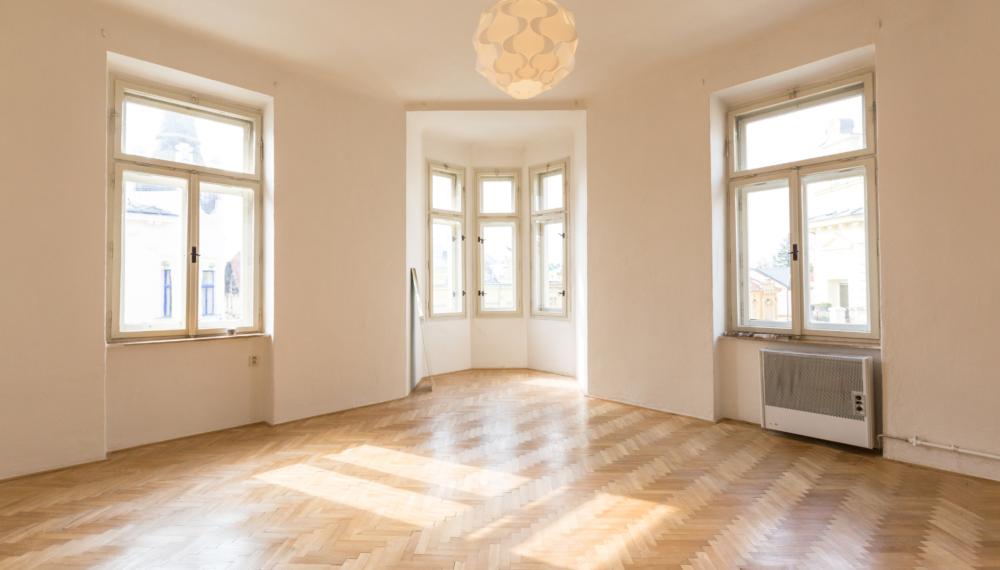What to consider when leaving the property vacant for an extended period
Void periods are an inevitable part of being a landlord, with most encountering a vacant rental property at some point. A property without tenants poses significant risks, as no one can promptly handle daily maintenance or report issues. Therefore, safeguarding your empty property is crucial.
While void periods are generally unwanted, they can sometimes be intentional, such as when conducting necessary work on the property. Regardless of whether you own a single property or a portfolio, any period without tenants means a loss of rental income, which impacts your overall return on investment.
Keeping your property safe and secure
When leaving your rental property vacant for an extended period, it is essential to inform your insurer. An “extended period” definition varies among insurers, so checking your policy’s small print is vital.
Due to the increased risk, insurance costs may rise when a property is unoccupied. To mitigate these risks, landlords can take several steps to manage a vacant property effectively. While some measures might seem obvious, they remain critical.
Avoiding further damage
Maintaining the property in good condition is paramount. Ensure no significant repairs are needed, and the property remains clean and presentable. Address any required repairs as soon as possible to make the property more attractive to potential tenants and prevent further damage.
To fill the vacancy quickly, advertise your property through multiple channels. This could include online listings, social media posts, or placing signs at the property itself. Broadening your advertising reach increases the chances of attracting tenants swiftly.
Keeping an open mind
Flexibility with prospective tenants can significantly enhance your chances of renting out the property. Be open to negotiating terms such as rent price, lease length, and move-in dates. The more accommodating you are, the more likely you are to secure a tenant.
Additionally, maintain an open mind about various rental strategies. What works for one landlord may not necessarily work for another. Experiment with different approaches to discover what suits you and your property best. With effort and adaptability, you should be able to rent out your property even during void periods.
Tips to protect a vacant property and maintain its condition until your next tenant arrives
Here’s how to keep your property in top condition while it awaits new tenants:
Conducting regular inspections
Regular inspections, both inside and outside the property, are crucial. These inspections help identify potential problems early, allowing you to address them promptly and prevent them from escalating into more significant issues.
Enhancing security
Securing your property against intruders is of utmost importance. Ensure that all doors and windows are properly locked, and consider installing robust locks if necessary. Additionally, well-lit exterior areas can deter potential trespassers, enhancing the security of your property.
Ongoing maintenance
Regular maintenance is vital to keeping the property in good condition. Addressing minor issues before they become major problems can save you time and money in the long run. Consider enlisting a professional company to perform regular checks and maintenance tasks, ensuring everything remains in optimal working order.
Adequate insurance coverage
Ensure that you have comprehensive insurance cover for your vacant property. This protects against potential damage or theft during the vacancy period. Check your policy details to confirm the extent of coverage and make any necessary adjustments.
Additional security measures
Beyond basic locking mechanisms and lighting, consider additional security measures such as installing a security system or surveillance cameras. These can provide extra protection and peace of mind, making the property less attractive to opportunistic intruders.
Keeping the property presentable
Maintaining the property’s appearance is also essential. Ensure the lawn is mowed, gardens are tended to, and rubbish is disposed of regularly. This keeps the property appealing and avoids giving the impression that it is unoccupied.
Informing neighbours
If you have a good relationship with the neighbours, inform them the property will remain vacant. They can help monitor the property and notify you if they notice anything unusual.
By following these strategies, you can ensure that your vacant property remains secure and well-maintained, ready for the next tenant.
Need expert advice to find the right funding solution for your property investments?
If you require further information on finding the right funding solution for your property investments or assistance in managing and preparing a vacant property for future tenants, please do not hesitate to contact us. Our team is here to provide expert advice and support. Contact our expert advisers today to gain a better understanding of your options.







